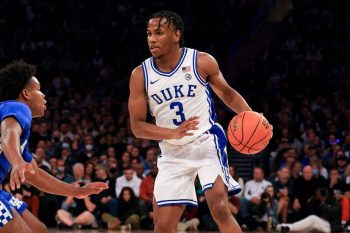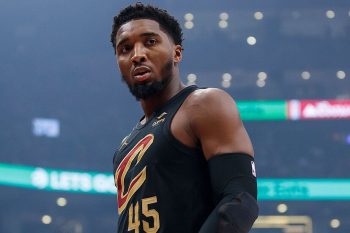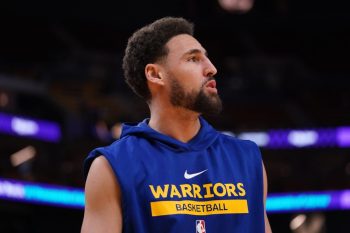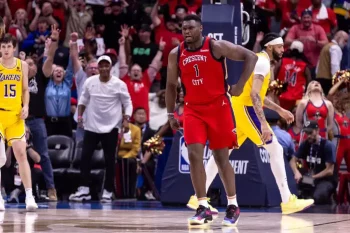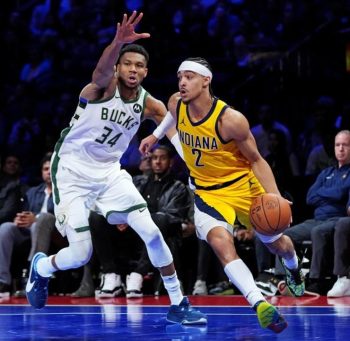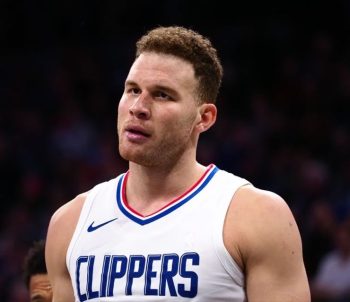NBA
NBA PM: The Fragility of the Chase
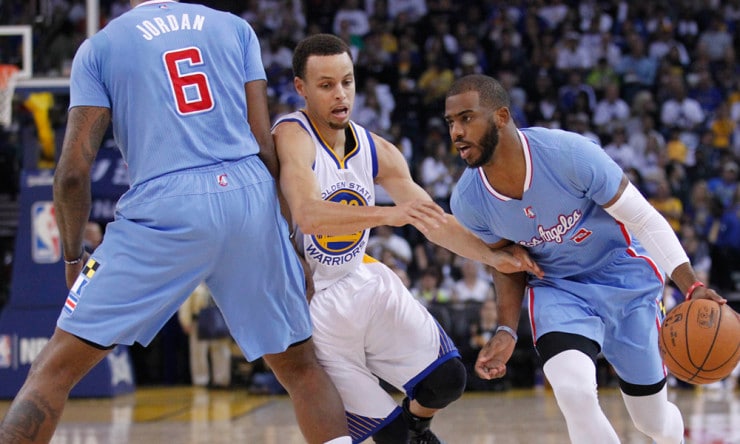
In the National Basketball Association, there’s a thin line between dynasty and doomsday, and over the span of the last 48 hours, the Golden State Warriors and Los Angeles Clippers were reminded of that fact.
Earlier on Tuesday, the Clippers announced that Blake Griffin would be out for the remainder of the playoffs and that Chris Paul—who underwent surgery to repair the broken third metatarsal on his right hand—will be reevaluated in four to six weeks.
Of course, barring an improbable run to the Western Conference Finals without their two best players, the Clippers’ season is likely to have concluded by the time four weeks have elapsed.
And although the early prognosis for Stephen Curry is more positive than that of Griffin and Paul, let’s be honest and face the inevitable truth: there’s no way that the Warriors win the Western Conference if Curry is operating far below 100 percent. Their odds of so much as returning to the NBA Finals diminish with each playoff game he misses.
Hidden somewhere within the plight of the Clippers and Warriors is a stark reminder as to the fragility of the chase.
Deep down, the hope for every playoff team is that lady luck treats them as kindly as possible over the stretch of a long playoff run. Every team enters the postseason banged up and most players that average over 25 minutes per game have some problems with their feet or legs and overall exhaustion.
For me, two individuals immediately come to mind: Tom Thibodeau and Kobe Bryant.
It is well-documented that Thibodeau clashed with the front office in Chicago over many issues, one of them being whether minutes played had a direct impact on the long-term health prospects of his players. Bryant comes to mind because there are many that believe he ran himself into the ground. Bryant may have only recently retired from basketball, but the truth of the matter is that he has been done since he ruptured his Achilles tendon just over three years ago. In the final seven games of his existence as pre-injury Kobe, he played an unreal 45.5 minutes per game.
Maybe Kobe’s injury was a coincidence and maybe it wasn’t, but what we have seen over and over in the NBA is that things can change in an instant. Ask Shaun Livingston, Tony Allen and Baron Davis, all three of whom suffered career-altering knee injuries on routine plays.
Or ask Derrick Rose, Iman Shumpert and Lou Williams—all three of whom tore their ACLs without any semblance of a warning signs.
And then, go ask Gregg Popovich why he simply refuses to take any chances.
* * * * * *
As he attempts to lead his San Antonio Spurs to their sixth NBA championship, Popovich has earned the reputation of being a chess player in a room full of many who can’t see past the end of a pick-and-roll. As Tim Duncan recently celebrated his 40th birthday, Popovich has come under fire and scrutiny over the past few years for seemingly pitch-counting his players. Clearly, Popovich subscribes to the school of thought that believes that progressive fatigue and over-exertion can cause injuries, particularly with aging players. I myself happen to be no medical expert, but I find the theory difficult to argue with.
Whether or not you agree, though, one cannot dispute the simple notation that if a player does not play, then he cannot get hurt. And when the NBA universe sees the league’s reigning Most Valuable Player (who happens to be a shoe-in to win the award a second consecutive season) and an individual who is widely regarded as the best player-leader in the league go down on consecutive nights, it’s a stark reminder as to how quickly things can change.
So the request here is to abate the hate as it relates to coaches giving players “rest days” over the course of the season. The risk of harm is just too great and too real.
Think about what happened to Stephen Curry and think about what happened to Chris Paul… then imagine that those injuries occurred two weeks prior to this point. What would we have said then?
For the Warriors, we would questioned the wisdom of going for their recording-setting 73rd win. We would have scolded Steve Kerr for not having the foresight to realize that he was putting his players at risk for something less than the true goal.
Now, instead, all we can ask ourselves is why the basketball gods continue to forsake the Clippers and whether the Warriors can hold down the fort without Curry.
* * * * * *
It’s often said that it’s better to be lucky than to be good. It’s actually best to be both, and as the Oklahoma City Thunder and the Spurs prepare to do battle once again, we are reminded that the NBA season is a marathon and that it is often a war against attrition.
To that point, it appears as if the Spurs are leading, and the moral in it all seems to be that minute-management and coaching each game as if it were one’s last is not necessarily a bad idea.
As the Clippers face the daunting task of attempting to win a playoff series without their two best players, they are a team whose immediate future springs more questions than answers. Coming into this season, there were many around the team that wondered whether Rivers would contemplate making drastic changes if the team were unable to at least make a trip to the Western Conference Finals. At this point, one should wait for the season to come an end before contemplating the answer, but the future of the franchise will certainly continue to hang as prominently as the banners in the rafters of the Staples Center.
Without a doubt, in the NBA, things can change in an instant. Unfortunately, for Stephen Curry, Steve Kerr, Chris Paul, Blake Griffin and Doc Rivers, we were served a stark reminder of that.
Collectively, as a basketball-viewing public, let’s remember that the next time we criticize players or coaches for pitch-counting themselves during the season, especially if you subscribe to the notion that the injuries to Curry and Paul were merely freak occurrences.
In the end, Popovich certainly isn’t happy at the idea of potentially facing a weaker crop of opponents in the Western Conference, but, through it all, being the chess master that he is, he certainly looks as smart as those close to him already know him to be.
